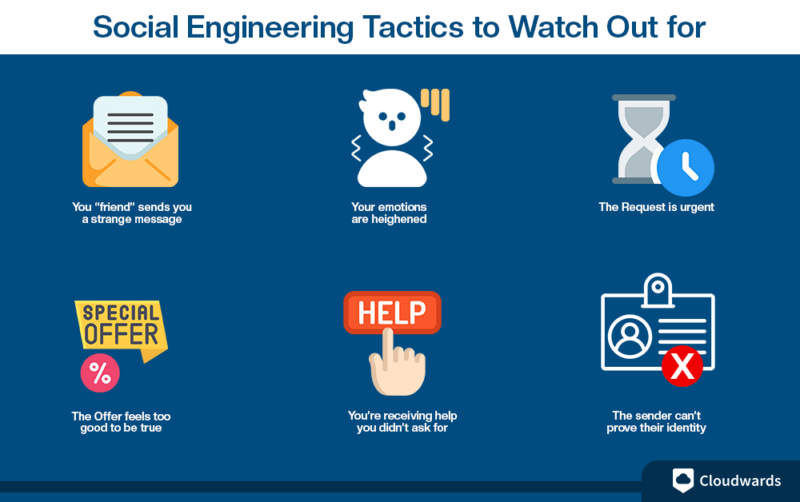- Swatting is a false emergency call from a malicious individual that prompts members of a SWAT team to invade the victim’s home.
- To perpetuate swatting, the swatters first obtain the victim’s private information, such as their physical address. They then use sophisticated technology to fool the law enforcement agency.
- Swatting is a criminal offense under federal and state law. It may be prosecuted as a misdemeanor or a felony, and a conviction could send the perpetrator to prison for up to 20 years.
Facts & Expert Analysis About Swatting Incidents:
- Swatters use social engineering, hacking, device location services or doxxing tactics to access the victim’s personal information, such as their home address.
- The perpetrators use VoIP and caller ID spoofing software to hide their identity and make the call look like it originated from the victim’s vicinity.
- The only protection against swatting is to prevent your personal information such as your physical address from being leaked online. This involves being careful when you share any information online, using privacy tools like VPNs and not clicking any suspicious links.
Picture this: You’re at home playing an online game or watching your favorite show, and out of nowhere you see red and blue lights flashing in your windows. There’s no emergency at your residence, but dozens of police cars swarm your home. That’s how swatting catches victims by surprise — but what is swatting?
In this guide, we’ll cover everything you need to know about these dangerous prank calls, from how they unfold to how to prevent them. Some swatting cases have led to serious injury and death because the victim didn’t know how to respond. Keep reading to learn how to deal with a live swatting attack and the steps you can take to prevent them, including using a VPN to protect your identity online.
Show allLearn more about our editorial team and our research process.
What Is Swatting?
Swatting is a harassment technique where the perpetrator (swatter) calls an emergency service to falsely report an ongoing serious incident, such as a murder, bomb threat or hostage incident, at the victim’s home. Due to the seriousness of the reported incident, a Specialized Weapons and Tactics (SWAT) team is dispatched to arrest the situation, hence the name “SWATting.”
To make the emergency look real, some swatters play recordings of live firefights or gunshots. As a result, the emergency response teams come with specialized explosives or deadly equipment, like door-breaching tools or automatic firearms, ready to use if needed.
How Do People Get Swatted?
Swatting happens when people’s personal information, such as their physical address, falls into the hands of individuals with malicious intent. The prank call happens in two stages, culminating in an emergency response team swarming the victim’s home.
- Getting the victim’s personal information: The attacker gains access to the victim’s personal information, primarily their physical address, through one of the following means:
- Location services: Most devices and gaming consoles require access to users’ locations to deliver personalized experiences, but there’s a tradeoff. Using the device or console can expose your exact location to other users, making it possible for malicious actors to trace your home address.
- Social engineering: This encompasses many tactics, such as the attacker sending you an email that appears to come from your contact list. When you open the email or a link in that email, it triggers a cross-site scripting attack that enables the attacker to get hold of your personal information.
- Hacking: Perpetrators conduct hacking attacks to access your IP address, which they use to reveal your physical address and other identifying information.
- Doxxing tactics: With doxxing, cybercriminals hack and publish personal and identifying information on the internet. If you’re a victim of doxxing, the swatter can access your personal information and use it to perpetrate a swatting call.
- Calling a law enforcement agency: Once the attacker has your personal information, they use sophisticated techniques to call emergency services, drawing their attention to your residence. Some of these tactics include:
- Using Voice over Internet Protocol (VoIP): Some swatters make hoax calls from a far-off location but use VoIP instead of directly calling 911 to make the swatting calls look like they originated from the victim’s area.
- Caller ID spoofing: The attackers combine VoIP with caller ID spoofing software. The ID spoofing tool hides the caller’s identity and makes it difficult for law enforcement to differentiate hoax calls from real emergency calls.

enable them to gain access to the victim’s address.
Is Swatting Illegal?
Yes, swatting is illegal in the U.S. It’s a felony under federal law to make false reports of serious crimes, such as bomb threats or live shootings, to elicit emergency or police response. Even milder forms of swatting that don’t lead to a full-blown SWAT response can be punished by law. Swatters can also be punished for other criminal offenses, such as:
- Wire fraud charges — For providing a false report, leading to a waste of emergency response team resources.
- Internet threat charges — For threatening to injure the victim, which is a federal crime.
- Stalking and endangerment charges — For perpetrating a swatting hoax that leads to a victim undergoing emotional distress or fear of serious injury or death.
What Is the Punishment for Swatting: Criminal Charges & Civil Action
Under federal law (18 U.S.C. § 1038 (2022)), swatters can be charged with a felony. If convicted of sharing false information to elicit a police response, the perpetrator could spend up to five years in prison. The punishment for swatting cases that lead to serious bodily harm or death are up to 20 years or life imprisonment, respectively.
The punishment under state law varies depending on the seriousness of each case. In California, if a swatting incident leads to serious injury or death, the crime is upgraded to a felony, and a conviction carries up to three years in prison and a fine of up to $10,000.
In New Jersey, if no one is injured during the swatting incident, the attacker is guilty of a third-degree crime, which carries a jail term of up to five years. The attacker could face up to 10 years in prison if the swatting causes serious injury or up to 20 years if it leads to death.
The Consequences of a Swatting Call
Swatting can have a severe and long-lasting impact on innocent victims, perpetrators and law enforcement agencies. Here are some of the consequences of swatting calls:
- Occupied response teams: Swatting draws SWAT teams, police and fire departments, bomb squads and other specialized units. Large-scale responses make these units unable to respond to real emergencies and waste law enforcement resources. One study found that agencies waste about $10,000 responding to a single swatting incident.
- Injury or death: In some cases, the swatting victim can react angrily, thinking burglars are invading their home. A shooting could ensue, leading to the death or injury of the victim or the responding officers.
- Damage to reputation: The swatter can experience significant damage to their reputation, which could result in heightened public scrutiny or job loss.
- Property damage: In some cases, a SWAT team may use specialized weapons to breach doors and gates to gain entry to a property, causing unnecessary property damage.
- Civil lawsuits: The victim could initiate a lawsuit for property damage or emotional distress from the law enforcement response team’s actions.
- Criminal charges: Depending on the severity or mildness of the swatting incident, the perpetrator could face felony or misdemeanor charges.
The Most Common Swatting Targets
Twitch streamers and gamers used to make up the largest cohort of perpetrators and victims of this potentially dangerous hoax. However, recent cases suggest the target group is expanding. Here are some commonly targeted groups and the reasons why they’re targeted:
- Streamers and gamers: To settle an online feud and watch the swatting incident live on the stream.
- Politicians: As part of political violence tactics or harassment campaigns.
- Rights activists: To target activists who champion missions the perpetrators don’t support.
- Journalists and bloggers: To stop them from publishing sensitive information or to punish them for doing so.
Why Do Streamers Get Swatted?
Streamers — particularly gaming streamers on Twitch — can be swatted if the perpetrators want to watch the ordeal happen live on the victim’s stream. The streamer is at home, plugged into the game and wearing headphones, likely unaware of the events taking place outside. Watching the victim undergo the frightening experience serves as a thrill for the perpetrators.
Beyond Gaming: Swatting Targets in Politics
Politicians and public figures have recently fallen victim, too. Notable public officials who have been the target of fake calls include:
- Rick Scott — Florida senator
- Majorie Taylor Greene — U.S. representative
- Nikki Haley — Republican presidential candidate
- Brandon Williams — New York republican
- Michelle Wu — Mayor of Boston
- Shenna Bellows — Maine Secretary of State
Swatting Deaths
A swatting attack usually begins as a prank, but the incident can escalate quickly and lead to death in some cases. In 2020, police officers in Tennessee responded to a fake emergency call at the home of a 60-year-old victim who was targeted because of his Twitter handle. The victim suffered a heart attack at the sight of armed officers swarming his house and died.
In another case, police responded to a fake hostage threat to a victim’s home in Wichita. The swatter claimed the victim had shot his father and was pointing a gun at his mother and brother. When police arrived, the victim answered the door and was fatally shot.
How to Prevent Swatting
Most of the time, swatting occurs when the attacker gets hold of the victim’s personal information, such as their home address. To avoid being a victim of this potentially deadly hoax, you must protect your personal information from falling into the wrong hands. Here are some tips to keep your personal information safe:
- Use privacy tools to stay anonymous online: Using a VPN like ExpressVPN can help you remain anonymous online. Surfshark’s “alternative ID” can also help generate a unique online profile to keep your real identity and personal information concealed.
- Don’t share personal information with strangers: Remove any trace of your personal information, such as your home address, from your gaming and social media accounts. When interacting with other users on social media, avoid sharing personal information unless absolutely necessary.
- Embrace password best practices: Set strong passwords and never share them with anyone. Ideally, each account or online profile should have a unique password. In addition, use multi-factor authentication (MFA) to add an extra layer of security.
- Use free WiFi with caution: Public WiFi networks are honeypots for cybercriminals. If you must use free WiFi, protect yourself with a VPN to thwart any schemes or traps set up to steal your personal information.
- Avoid suspicious links in emails and on websites: Don’t open just any link you see in your email lest you fall victim to a phishing scam through which cybercriminals get hold of your personal information.

other malicious actors to monitor it or steal personal information.
Where to Report a Swatter
If anyone — whether you know them or not — threatens to swat you, file a police report online or by phone. You can file an anonymous crime report and share every detail of the threat to help law enforcement agencies investigate and bring the culprit to justice.
What to Do if You Get Swatted
If you’re caught up in a live swatting incident, your reaction could be the difference between life and death. To avoid any tragic consequences, adhere to the following best practices:
- Stay calm — Seeing the police setting up a perimeter around your home with guns drawn can be frightening, but keeping calm is essential. Avoid rushing out or making sudden movements that could be mistaken for hostility. Remember, the law enforcement agency is responding to a serious emergency; jerky actions could trigger a shooting.
- Cooperate — Do everything law enforcement officers ask of you. If they ask to search your house, don’t resist. If they need to temporarily handcuff you during the search, follow their instructions. It won’t take long for the police to realize you’re just another swatting victim.
- File a police report — Once the dust settles, file a report of the swatting incident and press charges against the perpetrator.
Final Thoughts
Swatting used to be a harassment technique within the gaming community. However, anyone — including politicians, celebrities, activists and journalists — can be vulnerable to this dangerous hoax.
To avoid becoming a victim of swatting, keep your personal information out of reach of criminals. Avoid clicking on suspicious links or sharing personal information with strangers. You should also use privacy tools like VPNs whenever you are online — we recommend ExpressVPN.
Have you witnessed a swatting incident unfold in your neighborhood? What did you learn from the ordeal? Are you using privacy tools like a VPN to protect your personal information? Which VPN do you use? We’d like to hear about it in the comments. As always, thanks for reading.
FAQ: Swatting
- What Does Getting Swatted Mean?
Getting swatted is when a malicious individual reports a serious emergency, such as a bomb threat, active shooting or fake hostage situation, at your residence, prompting a response from emergency law enforcement.
- What Is Getting Swatted on Twitch?
Getting swatted on Twitch is when a cybercriminal or fellow streamer tracks down your home address and calls U.S. police to report an emergency at your residence during a livestream, prompting them to raid your home.
- What Is a Swatting Threat?
A swatting threat occurs when someone threatens to swat you or send an emergency law enforcement response under false pretenses.
- How Can I Avoid Getting Swatted?
To avoid getting swatted, keep your personal information out of malicious actors’ reach. Perpetrators can’t initiate a swatting attack if they don’t have your personal information.
The post What Is Swatting: Meaning, Definition & How to Avoid It in 2024 appeared first on Cloudwards.
 9 months ago
48
9 months ago
48

